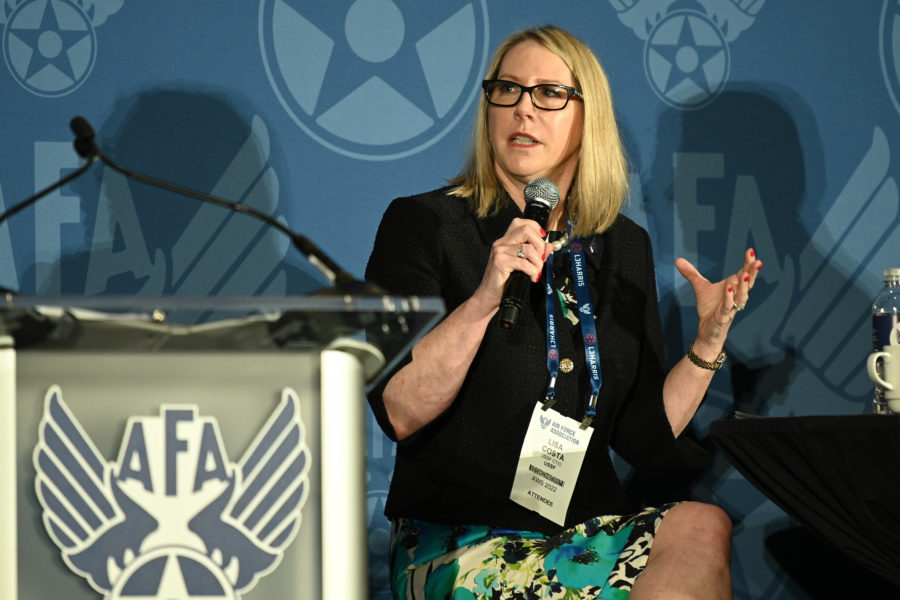As challenges to the U.S. military’s advantage in space continue to mount, the need to foster innovations and develop technologies to meet them rises accordingly.
A panel of experts addressed the technologies necessary to maintain superiority during a March 4 discussion at the AFA Warfare Symposium in Orlando, Fla.
“The United States has worked for decades to keep space peaceful,” said retired Air Force Lt. Gen. David A. Deptula, dean of AFA’s Mitchell Institute for Aerospace Studies, who moderated the discussion. “Given adversary actions, we’ve got to respond. We need to present senior leaders with a range of effective options, and that means pursuing both defensive and offensive capabilities.”
The Space Force’s chief technology and innovation officer, Lisa Costa, outlined the critical space-security activities underway now:
- Securing freedom of action in space—through artificial intelligence (AI), machine learning (ML), and advanced analytics.
- Improving survivability and resilient architectures.
- Digital engineering throughout the processes of acquisition, training, and operations.
- Adopting responsible AI and ML that Guardians can trust.
- Improving space access, mobility, and logistics.
- Enhancing current services, including search and rescue; space commerce; and intelligence, surveillance, and reconnaissance.
The panel’s industry representatives—Nicholas Bucci of General Atomics and Frank DeMauro of Northrop Grumman—offered their views on how partnerships between businesses and the government could support the efforts of Costa’s team.

“This is about what is driving … innovation. It’s all about size, weight, and power improvements in terms of capabilities,” said Bucci, vice president of defense systems and technologies at General Atomics.
Bucci would like to see a 500-kilogram satellite do the work now performed by a 5,000-pound satellite; to advance technology that can deliver better access to space; and to get talented people who can foster innovation hired in the space community.
DeMauro, Northrop Grumman’s vice president and general manager of strategic deterrent systems, described how the company developed a way to dock onto and refuel existing commercial satellites—thus extending their lives—and how such technology could support the military mission as well.
In order to continue such support enterprises and activities, DeMauro said companies must plan the designs of their factories accordingly.
“[When] figuring out the flexibility we need to have in our systems, we also need to have the flexibility in our factories and in our systems to be able to pivot quickly, to be agile in what we’re delivering to the customers,” DeMauro said. “We’re going to have to figure out how to make sure that it’s meeting the needs of the warfighter.”
